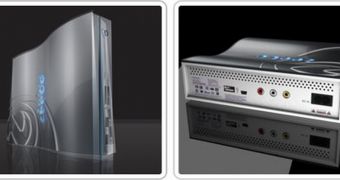This year’s Game Developers Conference has seen an event that might be considered, a few years into the future, as the start of a new era in videogaming. John Rizzo, who is the Chief Executive Officer of Zeebo, and Mike Yuen, who is a senior director with Qualcomm, have announced the launch of a new gaming console called Zeebo, targeted specifically at the emerging markets of Brazil, Russia, India and China (also known as BRIC). The potential customer base for the Zeebo is estimated at 800 million people only in the four countries.
The Zeebo is built around Qualcomm hardware, from the graphics chip to the built-in wireless 3G network. The idea is to create a console that is affordable, secure (piracy not being a threat), and easy to set up and use.
Zeebo says that, at the moment, you can only get a PlayStation 3 for the equivalent of 1,100 dollars and a Nintendo Wii for about 1,000 dollars, mainly because Sony and Nintendo have not officially launched their console there. Meanwhile, the Zeebo costs just 199 dollars and also serves as a connectivity point for all the home devices that require Internet access.
If you want to get a game on Zeebo, you need to use the wireless network, which is described as being fully secured by the developers. You pay for a game and it is offered via digital distribution, with no disk used. Piracy is deemed as a non threat because of the fact that all games are linked to a password, user name and the ID of the console itself.
Right now, the Zeebo console comes pre-loaded with FIFA 09, NFS Carbon, Prey and Brain Challenge. Those who buy it can download Quake for free. Zeebo also has a lot of partnerships with companies like Activision, Electronic Arts, Capcom, Gameloft and offers games like Quake 2, Sonic Adventure, Street Fighter or Resident Evil 4.
John Rizzo said that “We have low expectations but high hopes and high dreams for the future.” The Zeebo will initially arrive in Brazil, then in Mexico and in India, in Russia in 2010 and in China in 2011.

 14 DAY TRIAL //
14 DAY TRIAL //